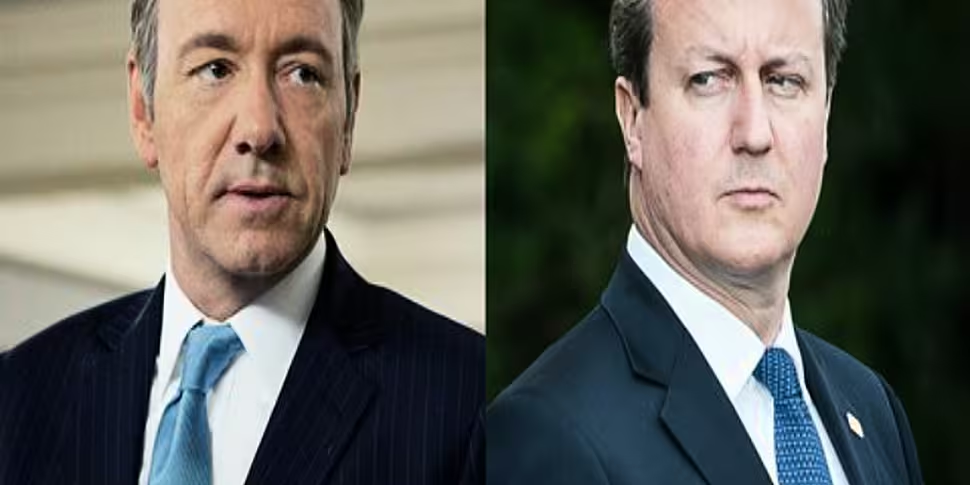The uproar caused by the leak of a civil servant’s account of Nicola Sturgeon’s meeting with a French ambassador has exposed the public to the murky side of the UK General Election. The run-up to May 7th’s vote will be contested in streets, town halls and TV studios; but it will also be fought in the shadows and corridors of power says Richard Chambers.
Leaks
Cabinet Secretary Sir Jeremy Heywood, Britain’s most senior public servant, has confirmed he’ll launch an inquiry into the most salacious story of the campaign so far. Who leaked this secret document and why?
Sturgeon has, outwardly at least, stressed her aim of locking David Cameron out of Number 10 with the help of the Labour party. So the Telegraph’s splash on Saturday will have come as a shock to the system of both the SNP and Ed Miliband.
The intrigue comes from the timing. It immediately follows the First Minister’s triumph in the Leaders’ Debate, which saw her declared the Most Dangerous Woman in Britain by the Daily Mail. The debate boosted her party’s prospects of taking over 40 of Scotland’s 59 Westminster seats.
Then the Telegraph story emerged, featuring claims, counter claims and behind-the-scenes whisperings.
 The denials were swift. Sturgeon herself took to Twitter to confront reporters and reject the claims.
The denials were swift. Sturgeon herself took to Twitter to confront reporters and reject the claims.
Interestingly, the point of interest for the supposed leak switched from the Foreign Office, which denied any part in the story, to the British Government’s Scottish Office, which is heavily controlled by the Liberal Democrats, who are very much seen as also-rans in this contest.
It will be some time before we have clarity as to what really happened in that meeting between Nicola Sturgeon and a French diplomat or what impact the reports will have on her prospects.
The issue behind all of this is the underlying distrust of the idea of coalitions. British politicians and electorates are far less familiar with these arrangements. The Tory-Lib Dem government was the first coalition in over 70 years. It’s fair to say that the power-brokering and deals required to form a government scares as much as it fascinates.
The intrigue is probably best spelled out in Channel 4’s recent feature length drama Coalition. That, as all political TV dramas do, plays hard and fast with some facts but gives a pretty good idea of how the Liberal Democrats were able to play both the Tories and Labour for some time before a deal was reached.
With Nick Clegg’s party, the SNP, UKIP and the DUP all potential kingmakers for a minority government, the possibilities for mischief and leaks is endless. Don’t be surprised to see more in the weeks ahead.
The Australian Rottweiler
All parties in this election recoil at the campaign's premiere buzzword: "narrative", but you can bet they all want to control it.
Spin doctors Alastair Campbell and Damian McBride are household names in Britain and their successors will have some role to play in deciding what voters will be talking about come polling day.
The most notorious is the Conservatives' Lynton Crosby, known as the Wizard (or Lizard, depending on who you ask) of Oz. The 58-year-old’s reputation is formidable. He’s an “Australian rottweiler” to opponents and the “Crosbinator” to his former client, London Mayor Boris Johnson.

Crosby’s background is in PR, having represented both the tobacco industry and drinks manufacturers, but his real prowess is politics.
He took John Howard to four successive victories in Australia before he entered the British fold in 2005, when he directed the campaign for Michael Howard’s ill-fated punt at Downing Street.
His breakthrough came in 2008, when he resurrected Boris Johnson’s mayoral campaign. He did it again in 2012, at a time when polling for the Tories in London and nationwide hit the basement.
Conservative insiders have long spelled out the influence Crosby has over Cameron. It’s widely reported that Crosby is behind the decision to avoid a head-to-head debate with Ed Milband, and the negative direction the Tory campaign has frequently taken.
His detractors aren’t convinced by his approach. Some say he’s brought back “the nasty party” image, while others point to the fact he’s never actually masterminded a winning general election campaign.
Crosby’s reputation, and that of his boss, will be cemented by May’s result.
The Americans
Rivalry and infighting are two key ingredients in House of Cards. There are no shortage of examples in British politics but the feud between two former Obama campaign masterminds is one of the most interesting back stories of this election.
Chicago man David Axelrod and Denver’s Jim Messina were key ingredients in shaping the “Hope and Change” message that took the Democrats to the White House, but the opening years of Barack Obama’s presidency took their toll on their personal relationship.

A popular behind-the-scenes look at the Obama media team claims Axelrod, who now works with Labour and Ed Miliband, and Messina, who is now providing his expertise to David Cameron’s campaign, tried to get each other fired.
Axelrod came out on the losing side that time, so you can be sure there's a personal animosity.
Both of the men specialise in ‘get out the vote’ operations and online advertising. Their new age strategising is already apparent on social media, where MPs on both sides appear to be well-trained to use key phrases and words which will have tested well with focus groups.
The battle between both campaigns will be fascinating and the grudge match adds a sharp edge to this campaign which even Frank Underwood would appreciate.









